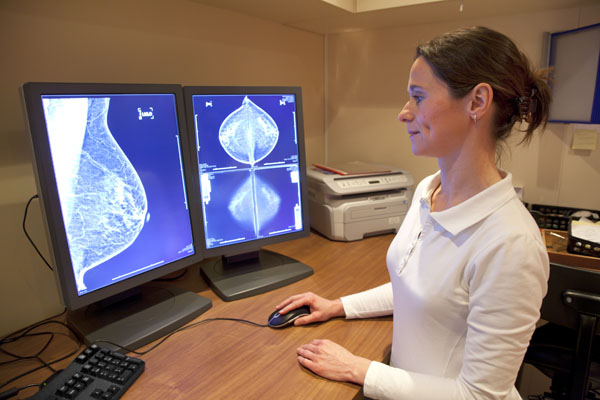Differences in the microbiome of human breast ductal fluid between women with and without breast cancer, suggest that those microbial communities could play a part in development of the disease. The study – the results of which were published in the journal, Scientific Reports – was the first of its kind to investigate the microbiome of the breast tissue.
The research was conducted by a multi-institutional team of researchers at the Dr. Susan Love Research Foundation, John Wayne Cancer Institute and NASA’s Jet Propulsion Laboratory. While previous research identified bacterial species colonizing the breast tissue, the current study is the first to demonstrate a link between the microbiome of the breast ductal fluid and development of breast cancer.
“We don’t yet know nearly enough about healthy and cancerous breasts – neither the microbial landscape nor the anatomy of the breast duct system,” said Dr. Susan Love, chief visionary officer of Dr. Susan Love Research Foundation. “Yet, all breast cancer begins in the ducts, so clearly exploration is critical to discovering what causes breast cancer and how we can eradicate the disease.”
In studying the breast tissue of 23 heathy women and 25 women with a history of breast cancer, Love and her collaborators found significant differences in the microbiome of each. Using a suction device, the ductal fluid was collected through the nipple and the microbial community was analyzed using next-generation sequencing.
“We have known for decades that our immune cells and the cells that line our organs’ surfaces can react to microbial components,” said Dr. Delphine Lee, director of the Department of Translational Immunology and of the Dirks/Dougherty Lab for Cancer Research of Providence Saint John’s Health Center’s John Wayne Cancer Institute. “These responses can trigger inflammation and immune responses, suggesting that this interaction might help the immune system monitor breast tissue for cancer, or that certain microbes could contribute to increased inflammation that leads to cancer development. There is still so much to explore.”
As recent studies suggest that microbes contribute to 16 percent of all cases of cancer worldwide, the current study only serves to further highlight to importance of healthy microbiomes. NASA’s Jet Propulsion Laboratory contributed to the project by using its genomic sequencing data analysis system, to identify the bacterial species present in the breast ductal fluid.
While the tool was developed in order to characterize microbes present on spacecrafts in an effort to prevent contamination upon landing on other planets and moons, the analytical device is also useful in identifying microbes associated with breast cancer. “Collaboration between medical researchers and experts in bioinformatics and other disciplines will continue to propel groundbreaking discoveries,” said Dr. Parag Vaishampayan, a scientist at NASA’s Jet Propulsion Laboratory.












Join or login to leave a comment
JOIN LOGIN